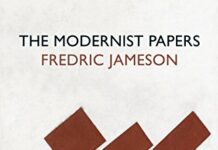
Ebook Info
- Published: 2007
- Number of pages: 280 pages
- Format: PDF
- File Size: 17.83 MB
- Authors: Fredric Jameson
Description
In the name of an assault on “totalization” and “identity,” a number of contemporary theorists have been busily washing Marxism’s dialectical and utopian projects down the plug-hole of postmodernism and “post-politics.” A case in point is recent interpretation of one of the greatest twentieth-century philosophers, Theodor Adorno. In this powerful book, Fredric Jameson proposes a radically different reading of Adorno’s work, especially of his major works on philosophy and aesthetics: Negative Dialectics and Aesthetic Theory.Jameson argues persuasively that Adorno’s contribution to the development of Marxism remains unique and indispensable. He shows how Adorno’s work on aesthetics performs deconstructive operations yet is in sharp distinction to the now canonical deconstructive genre of writing. He explores the complexity of Adorno’s very timely affirmation of philosophy — of its possibility after the “end” of grand theory. Above all, he illuminates the subtlety and richness of Adorno’s continuing emphasis on late capitalism as a totality within the very forms of our culture. In its lucidity, Late Marxism echoes the writing of its subject, to whose critical, utopian intelligence Jameson remains faithful.
User’s Reviews
Editorial Reviews: Review “The most philosophically sophisticated and searching study of Theodor Adorno to appear in English … powerful and persuasive.”—The Nation“[Jameson is a] prodigiously energetic thinker, whose writings sweep majestically from Sophocles to science fiction.”—Terry Eagleton From the Back Cover Theodor Adorno is widely recognized as one of the intellectual giants of the twentieth century, as a foremost cultural critic and philosopher, and one of the most important figures in the Frankfurt School and Western Marxism more generally. And yet, Adorno’s reputation has suffered from accusations about his alleged pessimism and, even worse, from attempts by postmodernists to recruit him to their war against all ‘grand narratives’, including, most importantly, Marxism itself. In this work Fredric Jameson rescues Adorno from the claws of his critics and the clutches of his false friends. Jameson sees Adorno as not only a thinker whose contribution to Marxism was unique and indispensable, but also as the theorist of late capitalism. Late Marxism introduces Adorno’s thought to a new generation of dissidents and demonstrates the freshness and relevance of dialectical thinking to criticism and resistance today. About the Author Fredric Jameson is Distinguished Professor of Comparative Literature at Duke University. The author of numerous books, he has over the last three decades developed a richly nuanced vision of Western culture’s relation to political economy. He was a recipient of the 2008 Holberg International Memorial Prize. He is the author of many books, including Postmodernism, Or, The Cultural Logic of Late Capitalism, The Cultural Turn, A Singular Modernity, The Modernist Papers, Archaeologies of the Future, Brecht and Method, Ideologies of Theory, Valences of the Dialectic, The Hegel Variations and Representing Capital. Read more
Reviews from Amazon users which were colected at the time this book was published on the website:
⭐Fredric Jameson has written a most illuminating study of Theodor Adorno’s philosophical output. If you have been struggling with understanding this man’s ideas, if you have spent countless hours going over his texts and pouring over the often incomplete secondary literature about him and the Frankfurt School, if you ever wished that there was a single work which might give you a coherent picture not so much of Adorno’s ideas as of the fundamental ways in which he approached philosophizing, then Jameson’s “Late Marxism: Adorno, or the Persistence of the Dialectic” will help you put an end to your searching.This book will not tell you everything you need to know about Adorno, but it will lead you along the paths of his thinking as Jameson points out and explicates the more telling aspects of his dialectical approach to truth. He makes it possible INTER ALIA for the reader to follow the shifting ways in which identity and non-identity must be seen in relation to the universal and the particular; what it means for there to be a ‘constellated’ relationship between ideas and concepts; and his clarifying description of how Adorno’s conception of the ‘model’ is paralleled by Schoenberg’s twelve-tone compositional method and how that reflects the methodological tentativeness of his negative-dialectical approach (all related to what Jameson describes on p. 75 as the “emergence of new conceptions…of mortality and materialism…(the) philosophical complements to a Marxian view of history itself”).What makes this book so handy is that it is actually a commentary on Adorno’s last two major works, the first part dealing with “Negative Dialectics” and the third part with “Aesthetic Theory”, with Jameson including relevant material from “Dialectic of Enlightenment” in the second part. I had already read the latter work plus the “Minima Moralia” and “In Search of Wagner”, but after a few unsuccessful attempts on my own to penetrate the verbal thicket of “Aesthetic Theory” I was feeling very frustrated at the prospect of ever really arriving at any deeper understanding of Adorno.Jameson is concerned to clear up some of the many interpretive misunderstandings that still bedraggle the understanding of Adorno’s work and to show why he describes this man’s philosophical approach as a ‘persistent’ “dialectical model for the 1990s” (p. 251, hence the title of this 1990 book). And, in keeping with this dialectical impulse, the explanations are often more concerned with what a particular item is NOT rather than with what it is. Now the newcomer might find this to be an aggravating characteristic of Adorno’s thought, but at the same time it is arguably an unavoidable aspect of the way he approaches and wields his critical tools. The going is not always easy in this book (I personally found myself reading many paragraphs two or three times over, but that was also sometimes just to savor the complex yet nicely crafted idiom Jameson employs in order to explain his points). Modern philosophical literature in general is rarely an easy read, but this book DOES reveal its meaning if you are willing to follow where Jameson is leading. Some chapters are easier to read than others, but I can assure you that the effort made to read and to understand the book will be worthwhile, that your understanding of Adorno will be greatly increased, and that you will have the pleasure of reading some finely wrought (even if often complicated) prose.I found the most valuable sections of the book to be those dealing with “Aesthetic Theory”. Jameson does what he can to explicate that suggestive if not always lucid book, yet he is able to summarize Adorno’s effort in not uncritical terms: “Adorno’s multiple parameters demand an analysis of extraordinary complexity and range, which he himself failed to articulate theoretically with absolute coherence, all the while projecting the ideal of such analysis with a power that rebukes the ambitions of most contemporary criticisms” (p. 219). And what makes Adorno’s treatment of aesthetics so fascinatingly worthy of our attention is that his ideas are never just a matter of things remaining purely aesthetic, rather the traditionally aesthetic always has a bearing on the historical and/or the political, indeed “the vital relationship of Adorno to political thinking lies in the form rather than the content of his thoughts, which, conceptualizing aesthetic form or philosophical content rather than politics as such, is capable of detecting within them–with a starker, more luminous articulation than can normally be achieved within political analysis or social history–the complex mobilities of the historical dialectic” (p. 225).And in the final section of the book, “Adorno in the Postmodern”, Jameson identifies the ways in which Adorno either presaged the arrival of postmodernism or else stands in opposition to it. His observations here are most valuable and perceptive given that the globalization we now take for granted was just underway and the author is able to poke through the largely empty rhetoric and false ironies of postmodernism. In this regard I was personally overjoyed to see Jameson make an explicit correlation between positivism and postmodernism (a similarity I long suspected), an identification that does depend, however, on the very specific way in which Adorno understood what he labelled as ‘positivism’.The author’s conclusion is simple: rather than consigning Adorno to some past and pointless era of twentieth-century philosophy, we need to reconsider the parameters of his often uncompromising outlook and the workings of his dialectical method if we wish to keep the critical tradition alive in a time when the pressures of a ‘totality’-driven conformity are greater than ever.
⭐… it needs to be said that Jameson is not the clearest writer. He uses a great many theoretical terms and drops a great many names without explanation. This is not in itself a bad thing, especially since Jameson isn’t bluffing: he knows his way around all the material he uses to “explain” Adorno. But many don’t and they will get little or no help from Jameson. All this means is that this is NOT a good “introduction” to Adorno (for that, I recommend looking to Susan Buck-Morss’s delightful “Origin of Negative Dialectics,” which, while sacrificing no rigor or depth, actually makes a worthy effort to think Adorno alongside the thinkers he moved with and against; either that or the Routledge Critical Thinkers series volume on Adorno, by Ross Wilson, which is also excellent and very clearly written; or even Martin Jay’s original trailblazer “The Dialectical Imagination”, which is dense but systematic and cogent): Jameson’s is best for intermediary students (among whom I count myself) who have already read some Adorno, at least some of the other major critical theorists (Horkheimer, Marcuse, Fromm, etc.), and are at least semi familiar with the names and ideas grouped under the (admittedly dubious) heading of Western Marxism. Don’t let me discourage you if you’re interested in this book, but just know that it is a heady brew of conceptual networks.I can’t resist pointing out that in a sad twist of fate in this book Jameson praises to the skies (as well he should) Robert Hullot-Kentor’s fabulous translations of Adorno, only to have the man himself, in his own book of essays on Adorno (“Things Beyond Resemblance”), single out Jameson for ridicule. “Late Marxism” is the target of an entire essay of snarky (and actually rather hilarious) vitriol from Hullot-Kentor. I felt sorry for Jameson the day I read that essay: it’s the equivalent of being smacked in the face by your biggest hero.
⭐Incisive book on Adorno, emphasising his Marxist aspects against the likes of Martin Jay who tends to downplay it. Though if you’re looking for a pure introduction, try Susan Buch-Mors ‘Origin of Negative Dialectics’. Otherwise, for those already familiar with Adorno work [and Jameson’s] this is a nice addition to the growing secondary literature on one of the seminal thinkers of the 20th Century.
Keywords
Free Download Late Marxism: Adorno, Or, The Persistence of the Dialectic (Radical Thinkers) in PDF format
Late Marxism: Adorno, Or, The Persistence of the Dialectic (Radical Thinkers) PDF Free Download
Download Late Marxism: Adorno, Or, The Persistence of the Dialectic (Radical Thinkers) 2007 PDF Free
Late Marxism: Adorno, Or, The Persistence of the Dialectic (Radical Thinkers) 2007 PDF Free Download
Download Late Marxism: Adorno, Or, The Persistence of the Dialectic (Radical Thinkers) PDF
Free Download Ebook Late Marxism: Adorno, Or, The Persistence of the Dialectic (Radical Thinkers)




